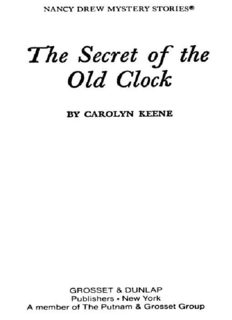Literature's Take on Work Burnout and the Search for Meaning
In the relentless push for productivity and career advancement, the modern workforce often finds itself grappling with burnout—a state of emotional, physical, and mental exhaustion caused by prolonged stress. Literature, with its capacity for deep introspection and societal critique, has long explored the theme of burnout and the existential search for meaning that often follows.
Through powerful storytelling, authors unravel the complexities of work-related fatigue, disillusionment, and the quest for purpose in an increasingly demanding world. In this blog post, we examine how novels capture the essence of burnout and illuminate pathways toward rediscovery and fulfillment.
The Modern Malaise: Capturing Burnout in Fiction
The struggle with burnout is not just a contemporary issue—it has been a thematic exploration in literature for decades. In Revolutionary Road by Richard Yates, the characters Frank and April Wheeler find themselves suffocating under the weight of suburban expectations and unfulfilled dreams. Frank’s dissatisfaction with his corporate job symbolizes the slow erosion of purpose that many feel when their work lacks meaning and personal connection.
Similarly, Bartleby, the Scrivener by Herman Melville offers a haunting portrayal of burnout and passive resistance. Bartleby's simple yet profound response—"I would prefer not to"—to any task assigned to him reflects the silent rebellion of those trapped in monotonous, unfulfilling roles. Melville’s narrative remains a timeless critique of the dehumanizing effects of mechanical labor.
Work Without Purpose: The Rise of Existential Crisis
Burnout often extends beyond physical exhaustion to touch the deeper question of purpose. In The Bell Jar by Sylvia Plath, protagonist Esther Greenwood experiences profound disillusionment with societal expectations and career pressures. Her internal struggle with identity and purpose speaks to the mental toll of work that lacks personal meaning.
A more contemporary take is seen in My Year of Rest and Relaxation by Ottessa Moshfegh, where the protagonist withdraws entirely from the demands of life and work in search of solace. Her decision to hibernate for an entire year symbolizes a radical escape from the burnout and disillusionment brought on by societal pressures.
The Corporate Machine: Critiques of Work Culture
Modern literature also critiques the corporate machine that drives burnout. Then We Came to the End by Joshua Ferris explores the absurdity and monotony of office life, capturing the disconnection and collective anxiety felt by employees facing downsizing and corporate instability. Ferris’ satirical take on corporate culture highlights the fragile nature of workplace fulfillment.
In Severance by Ling Ma, the collapse of society parallels the protagonist’s monotonous corporate job. Even as the world disintegrates, she clings to her office routine, a stark commentary on how deeply ingrained work becomes in our sense of identity, even when it no longer serves us.
Finding Meaning Beyond Work
While literature often portrays the bleakness of burnout, it also suggests pathways to rediscovery and meaning. In Eat, Pray, Love by Elizabeth Gilbert, the protagonist embarks on a journey of self-discovery after the breakdown of her personal and professional life. Her travels symbolize the search for purpose and balance that often follows burnout.
Similarly, The Alchemist by Paulo Coelho speaks to the importance of pursuing one’s "Personal Legend"—a journey toward discovering one’s true purpose. The protagonist Santiago’s quest serves as an allegory for finding deeper meaning beyond the constraints of routine work.
Lessons from Fiction: Overcoming Burnout and Rediscovering Purpose
Literature provides not only reflection but also guidance on overcoming burnout:
Recognize the Signs Early: Characters like Frank Wheeler and Esther Greenwood demonstrate the importance of acknowledging dissatisfaction before it consumes you.
Seek Purpose in Work: Stories like The Alchemist remind us that work is fulfilling when aligned with personal values and goals.
Embrace Change: Characters who escape burnout, like Elizabeth Gilbert, are those willing to leave behind unfulfilling roles in search of meaning.
Prioritize Self-Care and Reflection: The withdrawal in My Year of Rest and Relaxation—though extreme—underscores the necessity of rest and reflection in the healing process.
Final Thoughts
Literature’s exploration of burnout is a powerful reminder of the need for balance, purpose, and self-discovery in our work lives. Through the journeys of fictional characters, readers gain insight into the importance of aligning career ambitions with personal fulfillment. These narratives encourage reflection on how we define success and happiness, inspiring us to pursue careers that not only provide for our needs but also nurture our souls.








